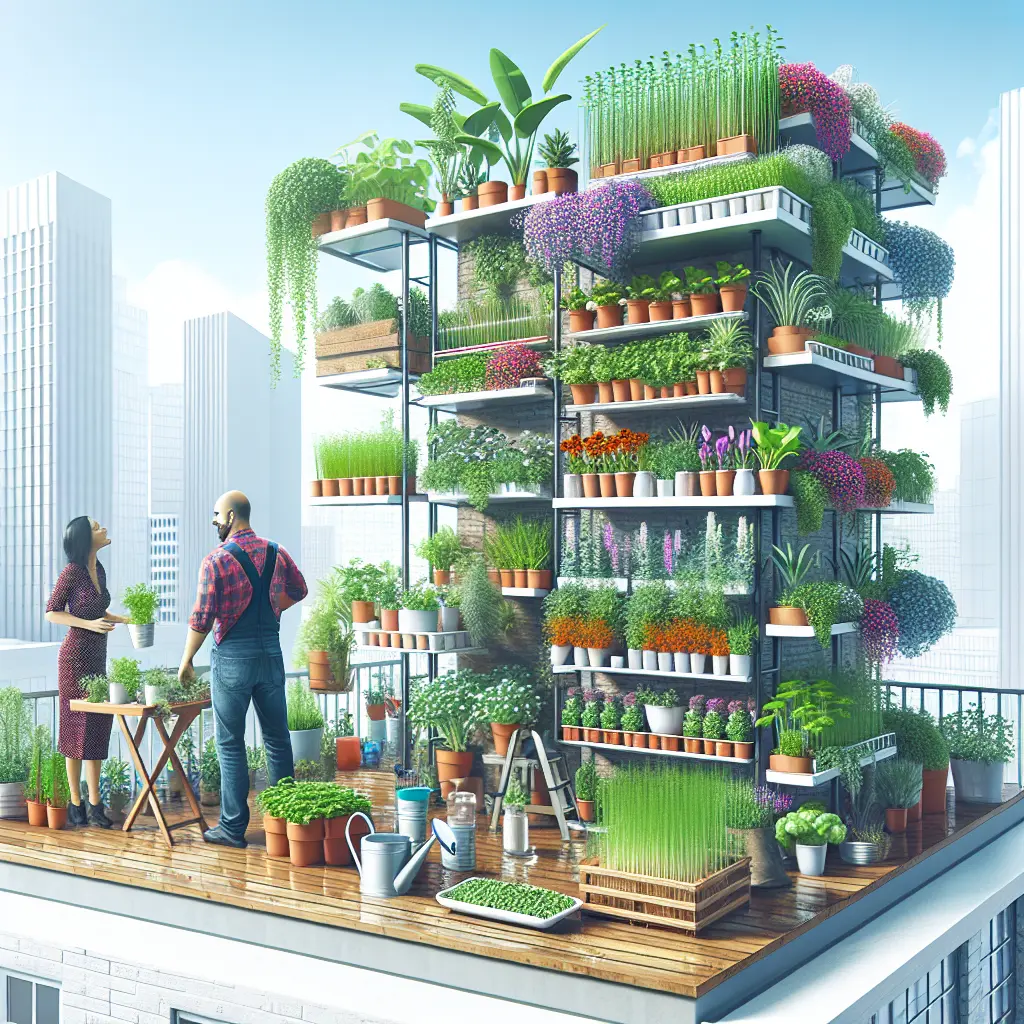
Vertical gardening is not just a trend; it's a versatile solution for garden lovers in urban settings where space is at a premium. With the rise of urban gardening, many enthusiasts are turning to vertical horticulture to make the most out of their balconies, rooftops, and even indoor walls. Today, let's explore some of the most effective vertical gardening techniques, space-saving gardening innovations, and design ideas that can help transform your small urban spaces into lush, productive green havens.
Vertical Gardening: Maximizing Small Spaces
Urban living often means compromising on space, but that doesn't mean you have to give up on gardening. Vertical gardening offers a plethora of solutions to grow plants in confined areas. By growing plants upwards rather than outwards, you not only save space but also can create visually striking green installations. Wall gardening and balcony gardening are prime examples of vertical gardening that blend aesthetics with functionality.
Innovations and Ideas in Vertical Gardening
Balcony Farm Window Garden: A revolutionary design that integrates small-scale gardening into urban homes by utilizing window spaces. This system features an intelligent care system that adjusts to the specific needs of your plants, promoting optimal growth without constant manual intervention (Balcony Farm, 2024).
DIY Vertical Gardens: For those on a budget, creating a DIY vertical garden can be both rewarding and economical. Using upcycled materials like old pallets, plastic bottles, or even shoe organizers, you can craft unique vertical structures that are both functional and eco-friendly (DIY Cheap Garden Beds, 2023).
Vertical Garden Kits: These kits are perfect for beginners and those looking for streamlined solutions. They typically come with everything needed to start a vertical garden, including containers, mounting systems, and sometimes even soil and seeds (Gardenista, 2024).
Techniques and Tips for Efficient Urban Vertical Gardens
Effective vertical planting techniques are essential for maximizing the health and yield of your garden:
Choose the Right Plants: Not all plants are suited for vertical gardening. Opt for species that thrive in confined spaces and require similar amounts of water and sunlight. Herbs, succulents, and many vegetables like tomatoes and peppers do well in vertical setups.
Proper Watering Systems: Implement drip irrigation or a self-watering system to ensure consistent moisture, which is crucial in vertical setups where soil dries out faster.
Regular Maintenance: Vertical gardens require regular care, including pruning, pest control, and nutrient management. Ensure your plants are healthy and thriving by checking them regularly.
Sustainable Urban Gardening
Sustainability is a key component of modern urban gardening. Vertical gardens can play a significant role in creating greener, more sustainable urban areas. They help in reducing the heat island effect, improving air quality, and even reducing building energy costs by providing additional insulation.
Recent Innovations and Trends
The recent surge in popularity of compact gardening methods has led to innovative designs like the Balcony Farm Window Garden mentioned earlier. Additionally, advancements in modular garden systems allow for customizable and scalable gardening solutions that fit even the smallest of spaces (Modular Gardens Inc., 2024).
The Social Impact of Urban Vertical Gardens
Beyond just aesthetics and food production, urban vertical gardens have a profound social impact. They provide tranquil green spaces that contribute to the mental and physical well-being of urban dwellers. Community-driven vertical gardens also foster social interaction and can educate communities about sustainability and food production.
Future Directions in Urban Gardening
As urban populations continue to grow, efficient gardening in small spaces will become even more critical. Innovations in vertical garden design continue to evolve, with new materials and technologies making it easier and more efficient to grow food virtually anywhere.
Concluding Thoughts
Vertical gardening is an exciting field that combines creativity with ecology, offering practical solutions for urban residents to engage in gardening without the need for extensive horizontal spaces. Whether through balcony gardening, rooftop gardening, or indoor vertical structures, the possibilities are limitless.
As we look forward to more innovations and community engagement in urban horticulture, it's clear that vertical gardens will continue to play a vital role in not only beautifying urban environments but also in making city living more sustainable and enjoyable.
Thank you for joining me on this green journey through the vertical landscapes of our urban world.
Warm regards,
Audrey Walters